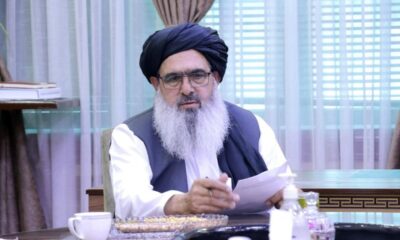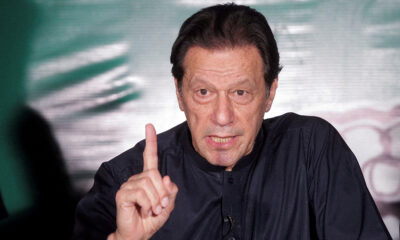Latest News
Watchdog reports of growing number of revenge attacks
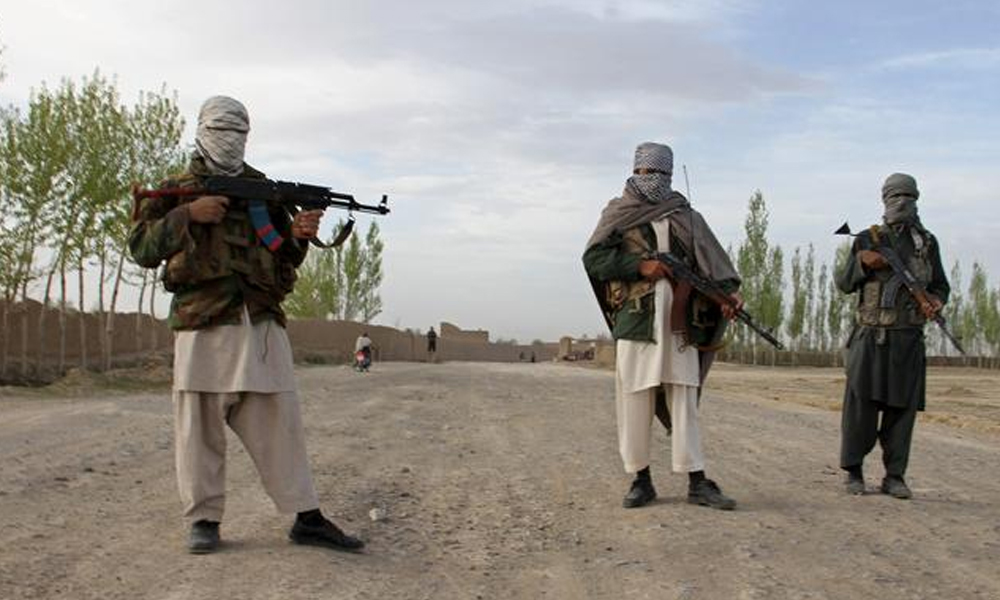
Taliban forces in Afghanistan are targeting known critics despite claiming that they have ordered their fighters to act with restraint, Human Rights Watch said on Saturday.
In Kandahar, the Taliban have detained and executed suspected members of the provincial government and security forces, and in some cases their relatives.
Among recent cases, the Taliban executed a popular Kandahari comedian, Nazar Mohammad, known as Khasha Zwan, who posted routines that included songs and jokes on TikTok. He had reportedly also worked with the local police.
On July 22, Taliban fighters abducted Khasha Zwan from his home in southern Kandahar, beat him, and then shot him multiple times, HRW said in a statement.
After a video of two men slapping and abusing Khasha Zwan appeared on social media, the Taliban admitted that two of their fighters had killed him.
“Taliban forces apparently executed Khasha Zwan because he poked fun at Taliban leaders,” said Patricia Gossman, associate Asia director at Human Rights Watch.
“His murder and other recent abuses demonstrate the willingness of Taliban commanders to violently crush even the tamest criticism or objection,” she said.
Activists in Kandahar said that in villages surrounding the provincial capital, Taliban commanders have detained scores of people associated with the government or police, HRW reported.
In one case, on July 16, Taliban fighters abducted two men whose brothers had worked with NDS 03, a CIA-backed strike force that has been responsible for summary executions and other abuses, from their homes in the Qasam Pol area, Dand district, HRW stated.
Their relatives say that they have not heard from the two men since.
Also in mid-July, a media report said Taliban fighters detained Ahmadullah, a former police officer, in Spin Boldak. His family has not heard from him since.
His uncle said that the Taliban had sent letters saying that anyone who had worked with the government or foreign forces would not be harmed so long as they reported to the Taliban leadership and “admitted their ‘crime.’”
International humanitarian law prohibits summary executions, enforced disappearances, and other mistreatment of anyone in custody, which are war crimes, HRW reported.
It is unlawful to detain civilians unless absolutely necessary for imperative security reasons, the statement read.
Retaliatory attacks are a form of collective punishment and are also prohibited, HRW stated.
The International Criminal Court is currently investigating allegations of war crimes and serious human rights abuses by all parties to the conflict in Afghanistan, including the Taliban.
Taliban commanders who knew or should have known about abuses by forces under their control and took no action to prevent or stop them are culpable as a matter of command responsibility, HRW said.
“Advancing Taliban forces have no blank check to brutally target their critics,” Gossman said. “The Taliban leadership usually denies the abuses, but it’s their fighters carrying out these attacks and their responsibility to stop the killings.”
Latest News
Afghanistan signs 30-year deal for marble mining in Daikundi

The Ministry of Mines and Petroleum of Afghanistan has signed a 30-year agreement with a private company to extract marble in Daikundi province.
Under the contract, the company will invest AFN 283 million in exploring and mining marble at the “Mesh-Uliya” site, spanning 16.74 square kilometers in central Daikundi.
Hedayatullah Badri, Minister of Mines and Petroleum, stated that the marble will be processed domestically before being exported abroad. He added that the Mesh-Uliya project is expected to create around 200 jobs, and the company is committed to supporting local communities through social initiatives.
Economic experts highlight that such investments, especially those focusing on domestic processing, are crucial for job creation, boosting exports, and strengthening the national economy. Analysts further note that the project will improve local infrastructure, expand social services, and enhance the economic and social well-being of Daikundi residents.
Since the return of the Islamic Emirate to power, efforts to develop Afghanistan’s mining sector have intensified, with multiple contracts signed in areas including cement, copper, iron, and lapis lazuli, involving both domestic and international companies.
Latest News
Passenger bus veers off Salang Highway, leaving 5 dead, dozens injured
Latest News
Major fire in Mandawi Kabul market contained, extensive losses prevented
Local shopkeepers said the fire broke out around 4 a.m.
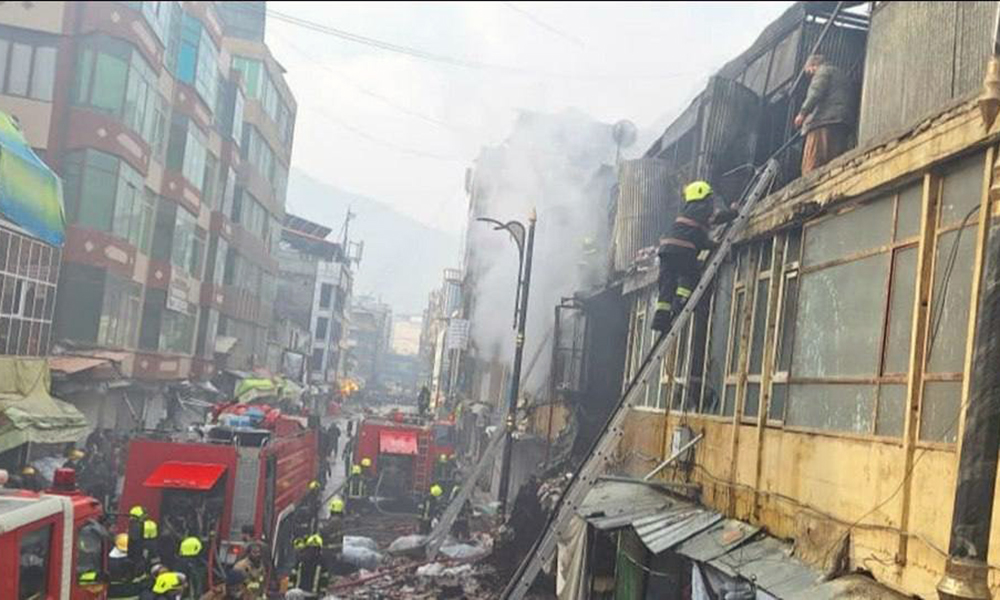
The Ministry of Interior reported that personnel from the General Directorate of Firefighting and Emergency Response successfully prevented the further spread of a fire at Mandawi market on Kabul early Sunday morning.
Abdul Mateen Qani, spokesperson for the ministry, said that the fire destroyed 10 storage facilities and 8 shops. He added that initial losses are estimated at around $700,000, but timely action by firefighting personnel saved property worth approximately $2.2 million.
Qani explained that the fire was caused by an electrical short circuit. He praised the rapid and effective containment operations, which prevented more extensive damage.
Local shopkeepers said the fire broke out around 4 a.m.
-

 International Sports5 days ago
International Sports5 days agoILT20: Abu Dhabi Knight Riders end Desert Vipers’ unbeaten run in dramatic one-run win
-

 Latest News3 days ago
Latest News3 days agoAfghan border forces prevent illegal entry of hundreds into Iran
-

 Latest News2 days ago
Latest News2 days agoPakistan summons Afghan diplomat over deadly attack in North Waziristan
-

 Business5 days ago
Business5 days agoMahirood Customs leads Iran’s exports to Afghanistan
-
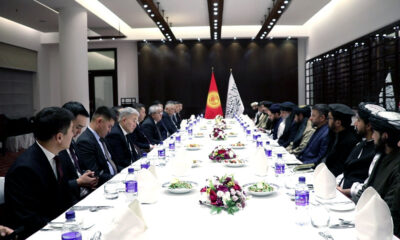
 Latest News5 days ago
Latest News5 days agoAfghanistan, Kyrgyzstan discuss expanding trade and economic cooperation
-

 Latest News3 days ago
Latest News3 days agoJapan allocates nearly $20 million in humanitarian aid for Afghanistan
-

 Latest News2 days ago
Latest News2 days agoKarzai urges reopening of girls’ schools and universities for Afghanistan’s bright future
-

 Latest News2 days ago
Latest News2 days agoAfghan health minister calls for medical cooperation between Kabul and New Delhi


